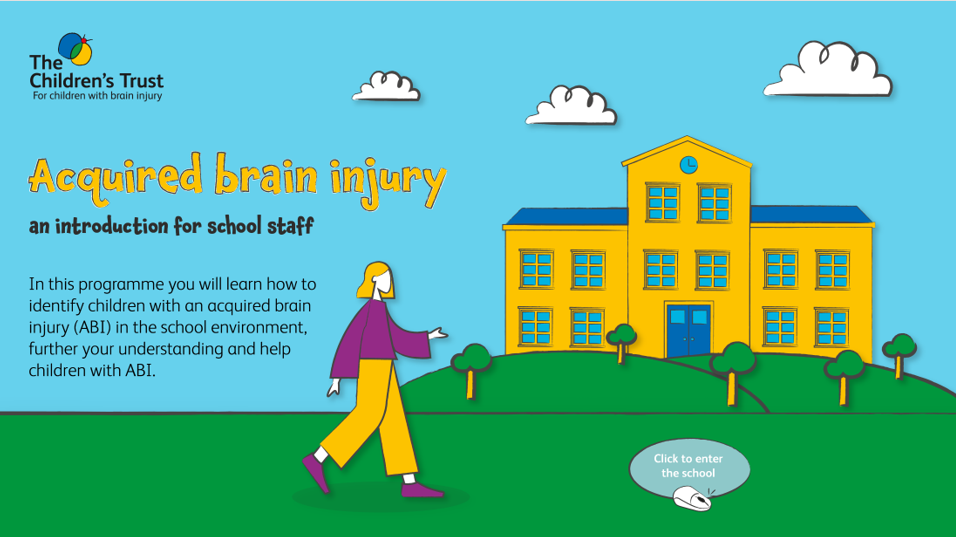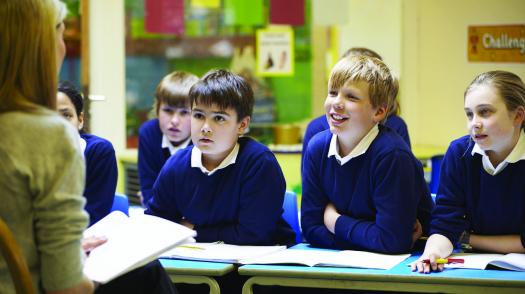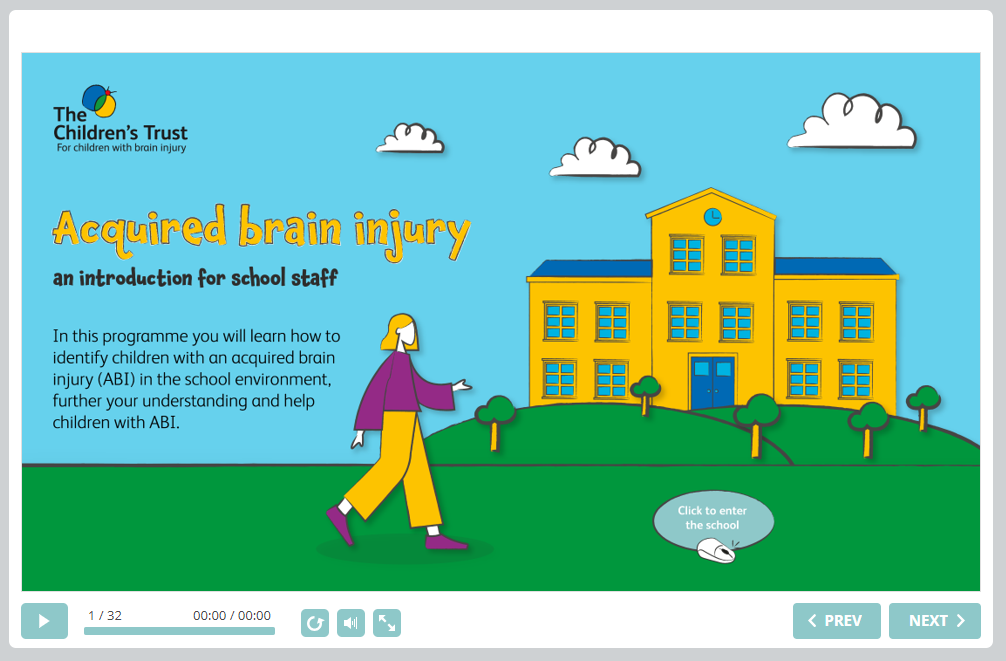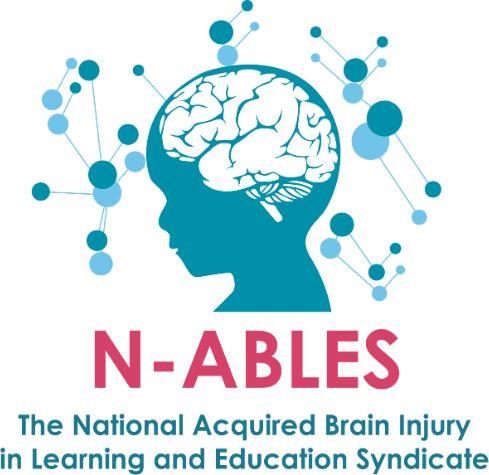
Published on: 23/06/21
With one child in every classroom affected by an acquired brain injury, The Children’s Trust has launched an online programme for school staff to increase awareness and understanding.

Published on: 23/06/21
The online programme is written from a teacher’s point of view and is delivered through a 30-minute interactive session.
This takes the user through the school environment, presenting some of the challenges a child with a brain injury may face during the school day. This may include fatigue, difficulty forming and keeping friendships, and difficulty remembering instructions.
The free introductory session, funded by the Constable Education Trust, is set in the context of the school and classroom and aimed at those with little or no knowledge of acquired brain injury (ABI). In due course, The Children’s Trust will introduce a follow-up session for those who wish to gain a deeper understanding of childhood brain injury.
Even concussion is a type of brain injury that can alter the way a child’s brain functions. The symptoms of a concussion can be very subtle and not always immediate. This means that a teacher could easily overlook the signs that a child or young person has had a concussion. It is therefore important to ensure that teachers, parents and anyone who cares for the child is aware of any recent bumps or accidents so that they can look out for warning signs.
Katy James, Head of Community Services Transformation at The Children’s Trust, said: “Many children and young people with an acquired brain injury return to school with a range of cognitive, behavioural, psychosocial, and physical difficulties that can affect their academic studies and daily life.
“In some cases, a brain injury can be hidden and as a result often missed or misattributed to other causes, so the right support is not provided.
“It’s very important to not only make sure we provide teachers with the knowledge and tools to fully support a child but also to help them recognise when a child is struggling as a result of their brain injury.”
Sign-up to the programme here.

Read our teachers’ guide to brain injury.

With one child in every classroom affected by a brain injury (N-ABLES 2019), neurorehabilitation experts from The Children’s Trust have launched an innovative programme to increase awareness and understanding of the condition.

‘Acquired Brain Injury: A Guide for Schools’ now available on the SEND Gateway.